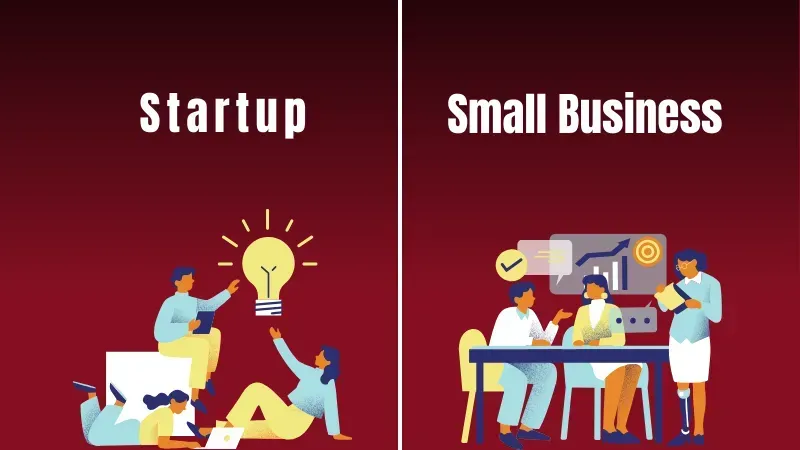Startups
Starting a Business Without Money: Proven Strategies for Beginners
.webp)
The business planning involves a degree of planning which involves the amount of capital you will be requiring to start a business. One can start a business with minimum or no capital and it may put your creative abilities and dedication to the test. It is helpful to understand that you can have other courses in case that is your goal and you wish to build it on nothing.
How to Overcome Common Startup Challenges?
One fact that cannot be disputed with regards to starting business is that money matters. In a survey done by Skynova, aiming to assist small businesses to receive payment faster, in 2022, startup founders were asked to list their top reasons to fail. Forty-seven percent attributed it to lack of financing and 44 percent attributed it to the fact that they simply ran out of money.
When you do not have money or have very little capital to start a business, the things you can do in order to grow and expand in the initial stages are limited. As an example, it might be more difficult to when you are not financially endowed.
You may also read :- How to Build the Right Marketing Team for Your Startup
Develop a Low-Cost Business Idea
Get supplies or inventory that should be bought. Promote and sell your business. The extent to which lack of money is influential may depend on the nature of business you are anticipating opening. In case you have a tight budget, then you should think about what type of businesses you can start without any capital.
Enterprises that have low startup costs are the best to start when you have no money. They are the kind of businesses you may potentially do in the comfort of your home with just a laptop and an internet connection. The following are some of the most wonderful ideas of businesses that are cheap.
- Creation of content to be used in online businesses.
- Blogging or freelance writing.
- Virtual assistant business.
- Social media manager/ consultant.
- Online tutor/creator of online courses.
- Online bookkeeper
- Dropshipping
- eBay reseller
- YouTube or TikTok creator
- Graphic designer
- Video modification
All these are businesses you would run in the comfort of your home without necessarily incurring high expenses. Some businesses can also be established online without startup capital. To take a few examples, you could begin a dog-walking or pet-sitting company, be a tutor to the local students, or become an art or music teacher. Such businesses allow you to use your skills to earn money with no money required.
The Critical Role of Budgeting
In setting up any business, a budget is needed to follow. Budget is your manual in finances to enable you to know your expenses in starting your business.
The way your business budget appears at the beginning may be determined by the type of business you are beginning. When you are working on a low-cost business plan, you might have a lot lower start up cost compared to somebody working on a brick and mortar business.
Regarding the budgeting of a small business before starting up, you must add up all the expenses that you anticipate making. That might include:
- Acquisition of stocks or supplies.
- Leasing or hiring out a business space.
- Buying instruments
- Remunerating marketing or advertisement.
- Hiring personnel
Your budget must be as elaborate as possible because you need to have a realistic picture of how your expenditure may appear. You can then use that as an estimate of what you think your sales or revenue will be upon the launch of your business.
Business budgeting is not a once-only affair. It is critical to appraise your budget at the end of every month to determine the movement of cash in and out of the business. One of the most appropriate ways of maximizing cash flow until your business is in the embryonic stage is by keeping down the expenses.
Creative Financing Options
One can fund a new business in several ways, without any money on his part. The comparison of alternatives can assist you to identify what could be fitting to you. The following possibilities can be considered:
- Small Business Grants: Money is given on these grants to help with entrepreneurship and as compared to a loan, the money does not have to be repaid. The SBA provides several grant programs, such as minority-owned, women-owned, and veteran-owned and so on.
- Crowdfunding: It is the alternative where individuals can donate money to campaigns in small amounts to assist entrepreneurs to set up their businesses. GoFundMe, Indiegogo, and Kickstarter are some of the most popular platforms used to receive assistance.
- Microloans. In case you feel comfortable borrowing the funds needed to deal with your new business, you can think of a microloan. In the microloan program of SBA you are given an opportunity to borrow up to 50,000 so that you can start a business and repay the same within six years.
- Credit Cards: Business credit cards may assist you in paying the goods you require in beginning or running your business and may also be easier to acquire than a loan. You can get cash back, points, or travel miles on purchases depending on the business credit card that you have.
- Peer-to-peer (P2P) Lending: You can get money through the people by participating in peer-to-peer lending. Investors also inject the money to fund loans and debtors repay them as time goes by with interest. The interest rate and terms of the loans may rely on your general creditworthiness.
Conventional small business loans may prove hard to acquire when you are in the initial stages of setting up a business. Generally, to qualify you need one to two years of operating history and a minimum volume of revenue to get lenders to take you in. Even doing some work to build your business credit may enable you to secure debt later on when your business is already launched.





